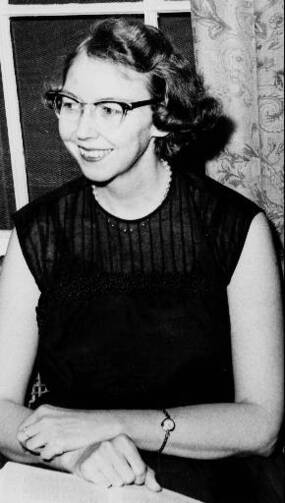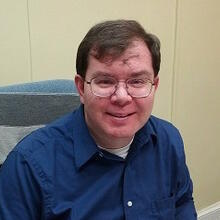Over two October days, I
attended a Flannery O’Connor forum
in which enough people attended to make up a quorum.
I learned many things which I didn’t know before
about prayer and writing and everything in between—
About how Flannery saw it all in her prayers sight unseen,
how she wanted to be a great writer and a great pray-er
and her struggle to combine both for her eternal
Happiness.
“Dear God,” she often wrote, “I cannot…”
And that “cannot” encompassed many things she wished for and
Desired.
Both wishes burned brightly in her and did not burn out.
Catholic and catholic was her aim
and she took up her pen and paper in the hope that her writing
did the same.
She prayed for God to make her mind “clear” as well as “clean,”
all the while hoping for Scotch oatmeal cookies and having
thoughts that were not.
“Can anyone teach me how to pray?”
And,
“Dear Lord, please make me want You.”
It goes to show we need not be saints or famous writers
(or academics or even Jesuits!)
to have those “make me…but not yet” moments.
To know it all—and be all—would be “the greatest bliss.”
What else did I learn?
Thanks to Dr. Susan Srigley (from Nipissing University, North Bay,
Ontario, Canada) “spiritual houses” need to be put in order
like Flannery sought to do with hers—
As Dr. Christina Bieber Lake (from Wheaton College in Illinois) said,
we need to be humble, practice “incarnational art” like Flannery,
In the face of “what-ifs”—
And, as Dr. Ralph Wood (Texas’ Baylor University) pointed out the
significance of icons, Dostoevsky and Christ Pantocrator, or even
the bags under our eyes
have spiritual significance (denoting suffering)—
and that we can have an eye for the practical and one for the spiritual.
And finally, Dr. William Sessions
(from Georgia State University, and who knew her well)
remembered—
how “It Takes a Story to Tell a Story” and how Flannery always
prodded to “write, write, write” something everyday.
It was Dr. Sessions who said that we in the audience
ought to do the same,
whether with a poem or a simile—
Even if it is written badly (like I’m afraid this is).
What can I say about what I just wrote?
Is it “A Prayer Journal”?
Not by a peacock!
“There is nothing left to say of me”?
No.
But, as Flannery said at a different time and in a different context—
“If it isn’t what it’s supposed to be, then,
To hell with it!”
Joseph McAuley is an assistant editor at America.








